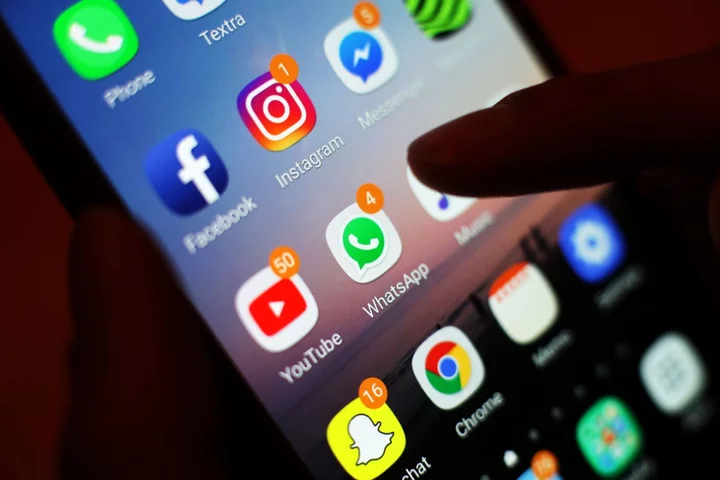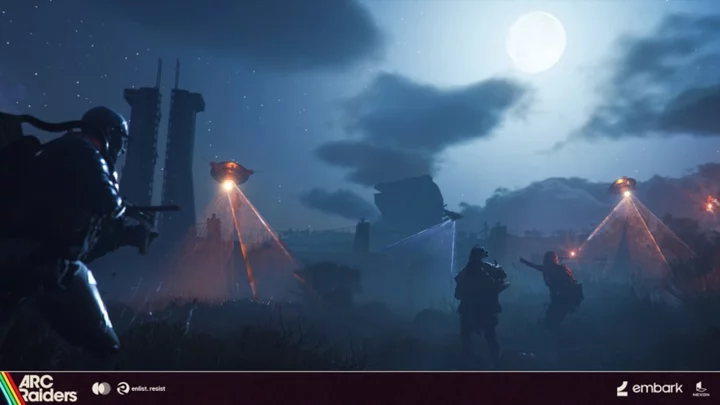
'Orca wars': Why are killer whales attacking boats, and are they really rising up?
A spate of recent orca attacks has fuelled concern among scientists in recent weeks for animal safety, and even led to speculation that the ocean mammal could be trying to rise up against humans. But are they? In a new trend – dubbed "orca wars" by some on social media – a population of orcas has recently been smashing into boats off the coast of Portugal and near the Strait of Gibraltar at a rate of nearly one per day. That's according to researcher Rui Alves, who collects data on the attacks. In June alone there have been 12 orca attacks on boats and 12 other encounters. In May, there were 21 attacks, says his website, orca.pt. Sign up to our free Indy100 weekly newsletter Of course, social media reacted just how you might expect: by picking a team. One person tweeted: “If you an orca whale reading this, i am on your side. I have always been on your side.” Researchers don’t know exactly why this is happening, but there are two main hypotheses. The first is that killer whales – highly intelligent and social creatures – have invented a new fad, something that younger members of orca pods have been known to do. The other, more concerning possibility, is that it is a response to trauma involving a boat, Dr Alfredo López Fernandez, of Grupo Trabajo Orca Atlántica (GTOA, or Atlantic Orca Working Group), told the Guardian. “[It could be a] response to an adverse situation; one or several individuals have had a bad experience and are trying to stop the boat so as not to repeat it. This behaviour coincides with the profile of adults,” he said. If it is the latter, there is even one key suspect in starting the trend: a white orca called Gladis Blanca (or White Gladis), who is thought to have had a bad collision with a vessel at some stage. Other adult orcas in the region also have injuries consistent with boat collisions or entanglement, López added. “All this has to make us reflect on the fact that human activities, even in an indirect way, are at the origin of this behaviour,” he said. In fact, the attacks are not such a new thing. Back in 2020, a group of orcas were seen pursuing sailboats in the region, in an act of aggression that was previously thought to be extremely rare. Since then, it has grown more and more common. The orcas have tended to ram into the hulls of boats, but they have also been seen scraping them with their teeth. The attacks sometimes snap the boats’ rudders, leaving sailors unable to navigate. In three cases, the animals damaged a boat so badly that it sank. However, for all the concern that the orcas might be getting, erm, orca-nised, scientists remain concerned that the attacks could come back to bite the ocean mammals eventually. The Iberian orca subpopulation is considered critically endangered, according to GTOA, with only 39 animals the last time a full census was carried out in 2011. López and his colleagues fear boaters may lash out, or that the orcas might hurt themselves in the process of ramming the vessels. Either way, it doesn’t look like the attacks will stop any time soon. So who knows: maybe the ocean world really is rising up… Have your say in our news democracy. Click the upvote icon at the top of the page to help raise this article through the indy100 rankings.
2023-06-19 16:19

Alibaba founder Jack Ma gives first class as visiting professor at University of Tokyo as he retreats from tech empire
Alibaba founder Jack Ma gave a lecture as a visiting professor to the University of Tokyo, as the high-profile Chinese entrepreneur retreats further from his business empire following Beijing's regulatory crackdown.
2023-06-19 14:50

Cutting social media use to 30 minutes per day found to significantly reduce anxiety and loneliness
Scientists have found that students who cut social media use to 30 minutes per day can see significant reduction in anxiety, depression, and loneliness, an advance that can lead to better mental health interventions. A growing body of research in recent years has shown that an increase in social media use among young people is linked to their declining mental health. Researchers at Iowa State University assessed this link further in a two-week experiment with 230 college students. Half of the participants were asked to limit their social media usage to 30 minutes a day, and received automated, daily reminders. The study, published in the journal Technology, Mind, and Behavior, found that this group of participants scored significantly lower for anxiety, depression, loneliness and fear of missing out at the end of the experiment compared to the control group. These participants also appeared to have a brighter outlook on life, scoring higher for “positive affect,” which the researchers describe as “the tendency to experience positive emotions described with words such as ‘excited’ and ‘proud.’” “It surprised me to find that participants’ well-being did not only improve in one dimension but in all of them. I was excited to learn that such a simple intervention of sending a daily reminder can motivate people to change their behavior and improve their social media habits,” study co-author Ella Faulhaber said. The psychological benefits from cutting back on social media was found to extend even to participants who sometimes exceeded the 30-minute time limit. Scientists suggest it is not about being perfect, but putting in the effort that makes the difference. While previous research has assessed the effects of limiting or abstaining from social media, many of the interventions recommended in these studies require heavy supervision and deleting apps or using special applications to block or limit social media use. “When a perceived freedom is taken away, we start resisting,” says Douglas A. Gentile, another author of the study, who adds that eliminating social media completely may take away some of its benefits like connecting with friends and family. For those looking to cut back on social media use, scientists recommend setting a timer to see how much time one spends on social media. “Recognize that it’s not easy to stick to a time limit. Social media apps are designed to keep you engaged,” researchers said in a statement. However, they urge people not to give up as limiting social media use over time has real benefits for daily life. “We live in an age of anxiety. Lots of indicators show that anxiety, depression, loneliness are all getting worse, and that can make us feel helpless. But there are things we can do to manage our mental health and well-being,” Dr Gentile said. Read More TikTok allowed millions of people to see Canadian ‘helicopter’ wildfire conspiracies Reddit hit by outage as fight over its future escalates Facebook, Instagram and WhatsApp all stop working Is your WhatsApp group making you anxious? Don’t worry – you’re not alone From a post-truth world to a post-trust world Why suicides among young women are rising at the fastest rate ever
2023-06-19 14:17

Coal Trains Bound for Giant Australia Port Halted by Protester
A total of 19 trains carrying coal to Australia’s flagship export hub for the fuel were disrupted after
2023-06-19 11:27

JLR taps Everstream Analytics' AI to dodge supply chain problems
By Nick Carey LONDON JLR said on Monday it has partnered with supply chain mapping and risk analytics
2023-06-19 07:17

Ford chairman says US can't yet compete with China on EVs - CNN interview
Ford Motor Executive Chairman Bill Ford said the United States was not ready yet to compete with China
2023-06-19 05:46

Scientists think there could be an 'anti-universe’ where time runs backwards
It sounds like something straight out of a Christopher Nolan film, but scientists have suggested that there could actually be an 'anti-universe' where time runs backwards. And if you’re anything like us, your brain is probably starting to hurt already. It comes from experts studying symmetries, and the new research is all to do with the fundamentals of symmetry in nature – the most significant of which are charge, parity and time. Bear with us… According to LiveScience, a new paper recently accepted for publication in the journal Annals of Physics suggests that there is a combined symmetry to the entire universe. Sign up to our new free Indy100 weekly newsletter As the research attests, the early universe was so uniform that time looks symmetric going backwards and forwards. The paper argues that the way we understand the world and wider universe around us, moving forwards in time, must also be expanded to include a mirrored version which runs backwards in time. It could also provide a deeper understanding of dark matter, too. The theory suggests that it is an invisible particle which only interacts via gravity and provides a pairing to the electron-neutrino, muon-neutrino and tau-neutrino. The research suggests that the conditions in a mirrored universe where time runs backwards would be full of these paired neutrinos, which would account for dark matter. Of course, we’d never be able to experience time running backwards even if it did definitely exist, but it’s a pretty cool theory none-the-less. It comes after Elon Musk made headlines in the world of science and space travel, after giving his estimation for when humans will land on Mars for the first time. The first moon landing famously took place in 1969, but space enthusiasts have been debating when they think the first Mars landing will be – now, the SpaceX CEO thinks we’ll be up there by 2029. Have your say in our news democracy. Click the upvote icon at the top of the page to help raise this article through the indy100 rankings.
2023-06-19 00:17

Can you find which letter 'G' is written correctly? Most people can't
We use letters every day of our lives, but apparently, there's one lowercase letter that we do not recognise. Psychologists at Johns Hopkins University have discovered that most people aren't aware that there are two types of the lowercase letter g. One of them is the open tail 'g' which most of us would have written out by hand with its image comparable to "a loop with a fishhook hanging from it. Sign up to our free Indy100 weekly newsletter Then, there is the loop tail 'g' which appears in print form e.g. books and newspapers as well as in Serif fonts such as Times New Roman and Calibri - we've all seen this type of letter millions of times, but it seems remembering it is an entirely different challenge altogether. There were 38 volunteers in the study published by the Journal of Experimental Psychology: Human Perception & Performance and they were asked to list letters that they thought had two variations in print. In the first experiment, "most participants failed to recall the existence of looptail g" while only two people could write looptail g accurately. "They don't entirely know what this letter looks like, even though they can read it," co-author Gali Ellenblum said. Next participants were asked to look for examples of the looptail g in the text and were asked to reproduce this letter style after this and in the end, only one person could do this while half the group wrote an open tail g. Finally, those taking part in the study were asked to identify the letter g in a multiple-choice test with four options of the letter where seven out of 25 managed to do this correctly. So how can we know a letter but not recognised it? It could be to do with the fact we are not taught to write this kind of 'g," according to Michael McCloskey, senior author of the paper. "What we think may be happening here is that we learn the shapes of most letters in part because we have to write them in school. 'Looptail g' is something we're never taught to write, so we may not learn its shape as well," he said. "More generally, our findings raise questions about the conditions under which massive exposure does, and does not, yield detailed, accurate, accessible knowledge." In a play-along video on John Hopkin's YouTube channel, four different g's labelled from one to four appear on the screen where it asked viewers to guess which is the correct looptail 'g'. (*Spoiler ahead*) The correct answer is number 3. Meanwhile, this study has also led research to question the impact that writing less and using more devices has on our reading abilities. "What about children who are just learning to read? Do they have a little bit more trouble with this form of g because they haven't been forced to pay attention to it and write it?" McCloskey said. "That's something we don't really know. Our findings give us an intriguing way of looking at questions about the importance of writing for reading..." Have your say in our news democracy. Click the upvote icon at the top of the page to help raise this article through the indy100 rankings.
2023-06-18 23:49

Why are major streamers joining Kick from Twitch?
Twitch streamers are leaving the platform in their droves in favour of rival website Kick which is offering far more lucrative financial opportunities to their competitors. Kick, which is owned by online gambler Tyler ‘Trainwreck’ Niknam, who previously made his name on Twitch, is very similar in style and content that you would find on other streaming sites with gaming being a major source of entertainment on the website. However, unlike Twitch, gambling and more adult-themed content are more widely accepted on Kick, which was only launched in January 2023. Last month, two big streaming stars Kai Cenat and iShowSpeed both announced that they would be leaving Twitch to join Rumble, another streaming platform that is popular with political commentators. Sign up to our free Indy100 weekly newsletter Now the exodus of streamers from Twitch has continued with reportedly more than one million people joining Kick after the New York Times reported that the website had signed Félix 'xQc' Lengyel, one of the world's most popular streamers, for a $100 million deal. However, xQc, has confirmed that he'll still use Twitch for his streams. In addition to xQc, Twitch's top female streamer Amouranth has also ditched Twitch for Kick in what is thought to be a non-exclusive deal with the site. In an announcement video where she is reading about xQc's deal with Kick, Amouranth says: "So, 100 million dollar deals have started… Can I get one of those?" Numerous other streamers, including Mizkif, have also spoken out against Twitch, claiming that the streaming site is 'done.' Interestingly, MrBeast, who is more of a YouTube content creator than a streamer has floated the idea of streaming on Kick in a form of protest against Twitch's new guidelines which are likely to put in place major restrictions on branded content come July 1st. In a now-deleted tweet, MrBeast, real name Jimmy Donaldson, wrote: "I’m not even a Twitch streamer and now I want to stream on a competitor just to spite them for you guys. If YouTube pulled this sh*t, I’d lose my mind." Other notable steamers who have left Twitch for Kick, include Adin Ross, Destiny, CorinnaKopf and GMHikaru. Speaking to Sportskeeda in May, Kick co-founder Ed Craven confirmed that the company plans to host in-person events in the future as well as gambling streams.
2023-06-18 23:23

ARC Raiders Closed Alpha: How to Get in
Here are some tips for getting into the closed Alpha playtest for the upcoming sci-fi extraction shooter ARC Raiders.
2023-06-18 23:18

ADT Self Setup Home Security Review
ADT's Self Setup smart home security system prioritizes ease of installation and compatibility with Google's
2023-06-18 22:53

Trillion-Dollar Answers to Tackle a Fast Heating World
Each week on the Zero podcast, Bloomberg Green’s Akshat Rathi invites guests working at the forefront of climate
2023-06-18 20:23
